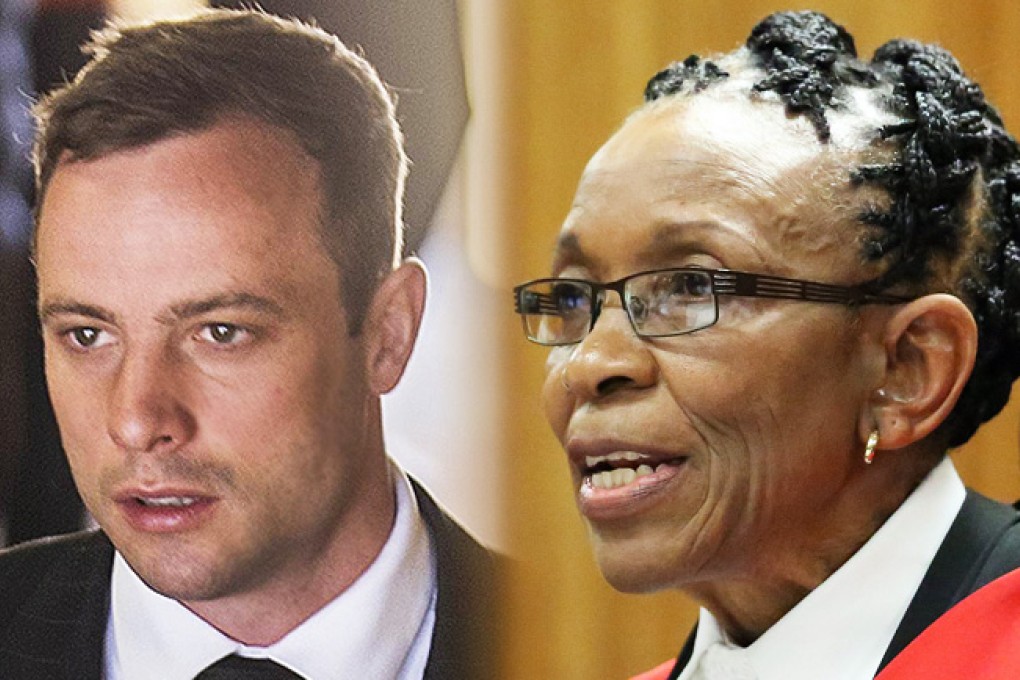Judge who sentenced Pistorius to five years in prison a trailblazer herself
Symbolism of a black woman jurist, Thokozile Masipa, weighing words of white male lawyers before sentencing white Olympian struck a chord

It was the kind of test few judges ever have to face: the South African High Court's Thokozile Masipa, former "tea girl" and crime reporter, faced the job of redeeming her widely criticised acquittal of Olympic athlete Oscar Pistorius in the full glare of the global media, amid one of the most divisive trials the country has seen.
She called it "a delicate balance". She warned that society couldn't expect to have its way on the sentencing, with Pistorius' circumstances having to be taken into account. And she cautioned that the public - in this case including the Twitterati who had dissected every moment of the 49-day trial - often had no idea of the difference between vengeance and justice.
With that, Masipa on Tuesday handed down a five-year prison term to Pistorius for the slaying of his girlfriend, Reeva Steenkamp, a sentence that could see him released to house arrest in as little as 10 months.
The trial has been the source of round-the-clock coverage in South Africa and intense international scrutiny. As jury trials no longer take place in South Africa, the verdict rested entirely on Masipa's shoulders. In 1998, she was only the second black woman to be appointed to the country's High Court. To this day, although the majority of the country's population is black, only 44 per cent of its judges are, according to Britain's Guardian newspaper. Out of 239 judges in South Africa, only 76 are women.
Her involvement in the Pistorius case was a routine assignment, but few could ignore the striking symbolism of a black judge weighing the arguments of rival white lawyers in a high-profile trial of a white sport star that was held in the shadow of South Africa's troubled racial history.
In closing remarks, Masipa said she had to strike a "delicate balance" in determining the sentence for Pistorius, who she had earlier decided was not guilty of premeditated murder. "I am of the view that a non-custodial sentence would send the wrong message to the community", referring to the possibility of consigning Pistorius to house arrest rather than a prison term. "But a long sentence would not be appropriate because it would lack the elements of mercy."
This has irked some in South Africa, who think the verdict was too lenient and was a sign of the preferential treatment that the rich and powerful (and sometimes white) receive in the country. The prosecution is weighing whether to appeal the sentence.